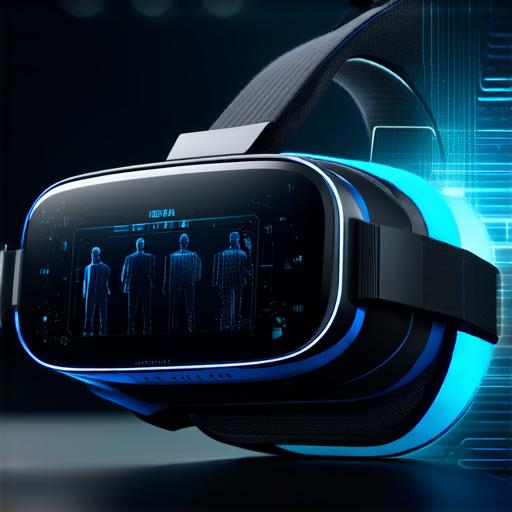Introduction:
Virtual reality (VR) is an immersive technology that allows users to experience a digital environment as if they were actually in it. It’s a rapidly growing field, with applications ranging from gaming to healthcare, education, and even real estate.
What is Virtual Reality?
Virtual reality is a computer-generated simulation that creates an artificial environment that replicates real-world surroundings. Users wear specialized headsets or goggles that track their movements and provide them with a 360-degree view of the virtual world.
This technology enables users to feel as if they are physically present in the digital environment, allowing for a level of immersion that is not possible with traditional media such as TV, movies, or video games.
Virtual reality has been around for decades, but it wasn’t until the release of consumer-grade VR headsets like the Oculus Rift and HTC Vive that it really began to gain traction. Today, there are countless applications for VR across a wide range of industries, from entertainment and gaming to education, healthcare, and more.
How does Virtual Reality relate to Digital Media?
Virtual reality is often referred to as the next big thing in digital media. It represents a major shift away from traditional forms of media consumption and towards more interactive and immersive experiences. In many ways, VR is an extension of digital media, providing users with new ways to engage with content and interact with virtual environments.
Virtual Reality and Digital Media: A Case Study
One excellent example of how VR relates to digital media is the use of virtual reality in the gaming industry. Virtual reality has already had a significant impact on the gaming industry, with many games being developed specifically for this technology.
For example, the popular game “Beat Saber” was developed exclusively for the Oculus Rift and has become one of the most successful VR games to date.
In addition to gaming, virtual reality is also being used in other areas of the entertainment industry, such as film and TV. For example, the movie “Avatar” was released in both 2D and 3D formats, but it was the 3D version that really captured people’s imaginations.
Virtual reality technology could potentially take this concept even further, allowing users to fully immerse themselves in a virtual world and experience the story as if they were truly there.
Virtual Reality and Digital Media: The Future
The future of virtual reality is bright, with many experts predicting that it will continue to grow and evolve in the coming years. As technology continues to advance, we can expect to see even more innovative uses for VR across a wide range of industries.
For example, virtual reality could be used to simulate real-world scenarios for training purposes, or to create highly immersive educational experiences.
In addition to its potential applications in entertainment and education, virtual reality is also expected to have a significant impact on the way we work and interact with technology. For example, virtual reality could be used to create more engaging and interactive user interfaces, or to allow for remote collaboration between teams that are located in different parts of the world.
Virtual Reality and Digital Media: FAQs
What is virtual reality?
Virtual reality is a computer-generated simulation that creates an artificial environment that replicates real-world surroundings. Users wear specialized headsets or goggles that track their movements and provide them with a 360-degree view of the virtual world.
How does virtual reality relate to digital media?
Virtual reality is often referred to as the next big thing in digital media. It represents a major shift away from traditional forms of media consumption and towards more interactive and immersive experiences. In many ways, VR is an extension of digital media, providing users with new ways to engage with content and interact with virtual environments.
What are some examples of how virtual reality is being used in the entertainment industry?
Virtual reality has already had a significant impact on the gaming industry, with many games being developed specifically for this technology. For example, the popular game “Beat Saber” was developed exclusively for the Oculus Rift and has become one of the most successful VR games to date.
What are some potential future applications for virtual reality?

The future of virtual reality is bright, with many experts predicting that it will continue to grow and evolve in the coming years. As technology continues to advance, we can expect to see even more innovative uses for VR across a wide range of industries, including entertainment, education, healthcare, and more.
